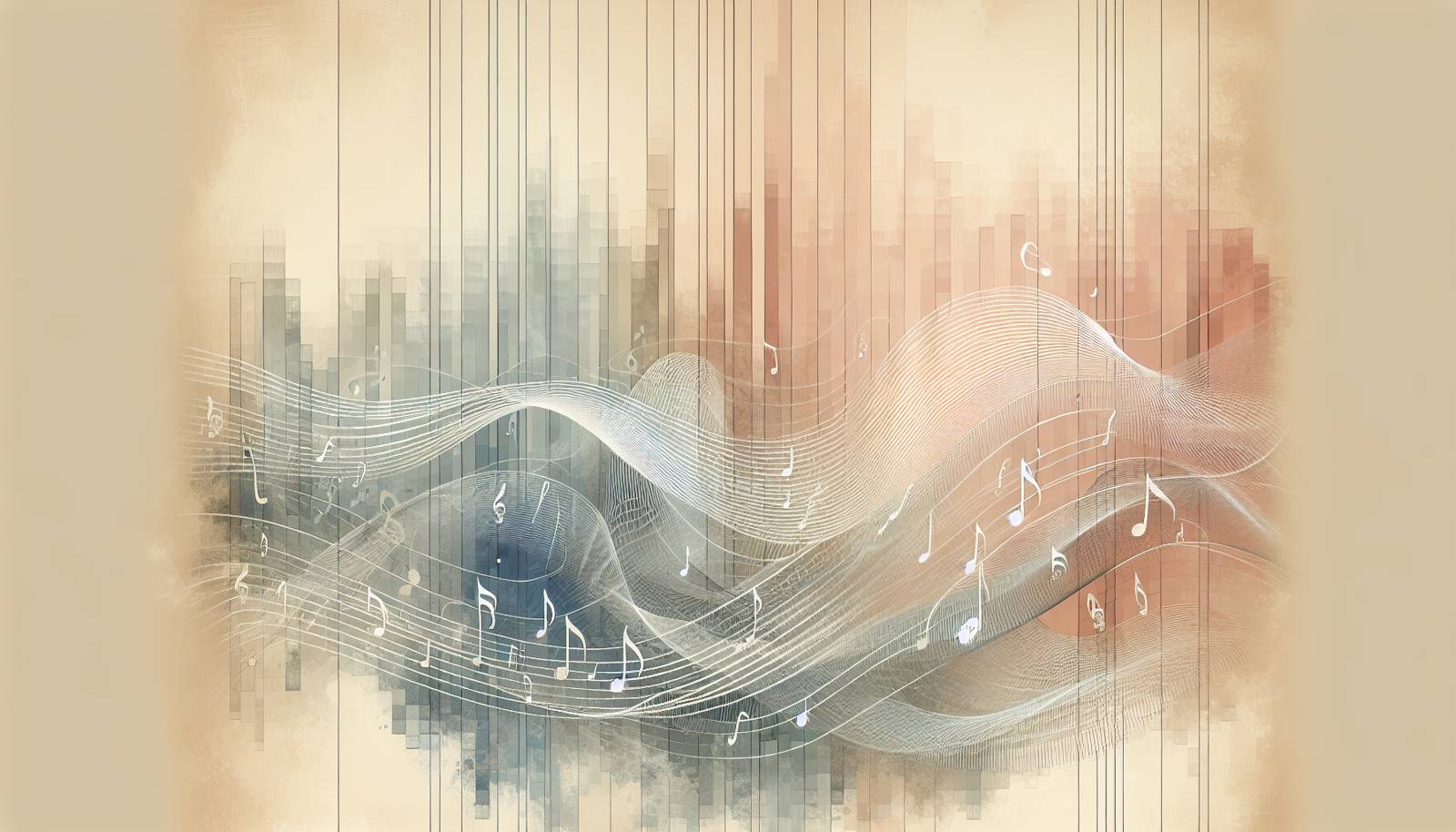
FAQ About Role of Video Game Soundtracks in Music Industry

What role do video game soundtracks play in the music industry?
Video game soundtracks play a significant role in the music industry by blending traditional music composition with interactive and adaptive technology. They often set trends in musical themes and production techniques that transcend gaming, influencing film and television scores, pop music, and concert performances. With increasing popularity, these soundtracks contribute to the diversification and expansion of the music industry.

How have video game soundtracks evolved over time?
Video game soundtracks have evolved from simple, monophonic tunes designed for early consoles to complex, orchestral compositions recorded by live musicians. Early soundtracks relied heavily on chiptune music due to technical limitations, but as technology improved, composers began incorporating diverse genres, including classical, electronic, rock, and world music, creating rich, immersive auditory experiences that rival traditional music forms.

Can video game soundtracks influence mainstream music trends?
Yes, video game soundtracks can influence mainstream music trends by introducing innovative sound design and compositional techniques. Artists and producers in the pop and electronic music scenes frequently draw inspiration from video game music, incorporating retro sounds, rhythmic elements, and the dynamic range of emotions present in these soundtracks into their own projects.

Are there any notable video game soundtracks that have impacted the music industry?
Some notable video game soundtracks that have had a significant impact on the music industry include Final Fantasy series, The Legend of Zelda, and Halo. These soundtracks are renowned for their memorable themes and innovative compositions, often performed in concert settings, highlighting the artistry and appeal of game music beyond the gaming community.

How do video game composers approach creating a soundtrack?
Video game composers approach creating a soundtrack by considering the game's narrative, setting, and emotional tone. They collaborate closely with game developers to ensure that the music complements gameplay and enhances the overall experience. Composers often use adaptive music techniques that allow the soundtrack to respond fluidly to player actions, creating a more immersive and interactive soundscape.

What is adaptive music in video games?
Adaptive music in video games refers to compositions that dynamically change in response to the player's actions or the game's state. This technique involves layering different musical elements that can be modified or rearranged based on gameplay, ensuring that the music aligns with in-game events and maintains the player's immersion and emotional engagement.

How do video game soundtracks contribute to a game’s success?
Video game soundtracks contribute to a game's success by enhancing its emotional depth and atmosphere, making gameplay more engaging. A well-crafted soundtrack can evoke strong emotions, create a memorable gaming experience, and increase a game's replay value. Iconic soundtracks can also help a game establish a distinct brand identity, attracting fans and encouraging community growth.

What are some common genres found in video game music?
Common genres found in video game music include orchestral, electronic, rock, jazz, ambient, and world music. Composers often blend these genres to suit the game's setting and narrative, creating unique soundscapes that appeal to a broad audience. The diversity in genre allows for creative expression and innovation in soundtrack composition.

Can video game soundtracks be performed in concert settings?
Yes, video game soundtracks are often performed in concert settings, appealing to both gaming and music enthusiasts. Events like Video Games Live and the Final Fantasy Distant Worlds concert series feature live orchestras performing popular game music, highlighting its complexity and artistic merit. These concerts have helped raise the profile of video game music in the classical and contemporary music arenas.

How do video game soundtracks differ from movie soundtracks?
Video game soundtracks differ from movie soundtracks primarily in their interactive nature. While movie soundtracks are linear compositions synchronized to the film's visual narrative, video game soundtracks must adapt to variable gameplay elements and player interactions. This requires more flexible and layered musical structures that can change seamlessly with the game's dynamics.

What is the significance of chiptune music in video game soundtracks?
Chiptune music holds significant importance in video game soundtracks as it represents the origin of game music. Created using programmable sound generator (PSG) chips in early consoles, chiptune compositions are characterized by their simple, yet iconic retro soundscapes. This genre has experienced a resurgence in popular culture, influencing modern music genres and being cherished for its nostalgic value.

Why do some video games use licensed music tracks?
Some video games use licensed music tracks to enhance the game's authenticity and appeal by incorporating well-known songs that resonate with players. Licensed music often suits games with realistic settings, such as sports or driving simulators, where familiar tracks can augment the immersive experience. Moreover, they can attract fans of the featured artists, broadening the game's audience.

How do video game music awards recognize composers?
Video game music awards, such as the Game Audio Network Guild (G.A.N.G) Awards and the BAFTA Games Awards, recognize composers who have achieved excellence in creating soundtracks for video games. These awards honor innovation, artistic merit, and the impact of sound in gameplay. Winning or being nominated for these awards can significantly raise a composer's profile within both the gaming and music industries.

What role do video game soundtracks play in online communities?
Video game soundtracks play a vital role in online communities by fostering a shared enthusiasm for the music. Fans often exchange remixes, cover performances, and analyses of their favorite soundtracks, building a strong community around the appreciation of game music. This engagement helps foster a deeper connection between players and the games they love, encouraging creativity and communal activities.

Can soundtracks from video games contribute to musicians' career paths?
Yes, soundtracks from video games can contribute significantly to musicians' career paths. Composers, performers, and arrangers associated with popular game soundtracks often gain recognition beyond the gaming realm, leading to opportunities in film, television, and live performances. This cross-industry exposure can help artists diversify their portfolios and reach wider audiences.

How do technological advancements impact video game soundtracks?
Technological advancements have significantly impacted video game soundtracks by expanding creative possibilities. Enhanced audio capabilities in gaming hardware allow for higher quality sound production, while software innovations enable composers to create more complex and interactive compositions. These advancements lead to more immersive soundscapes that enhance player engagement and satisfaction.

Are there educational programs dedicated to video game music composition?
Yes, there are educational programs dedicated to video game music composition. Several universities and institutions offer degrees and courses focused on game audio production, composition, and sound design. These programs provide aspiring composers with the skills and knowledge needed to succeed in the gaming industry, covering both technical and creative aspects of crafting impactful soundtracks.

Why is the video game soundtrack industry growing in popularity?
The video game soundtrack industry is growing in popularity due to the increasing recognition of game music as a legitimate art form. The growing diversity in gaming audiences, along with technological advancements, has led to more sophisticated and widely appreciated soundtracks. Furthermore, the cultural integration of gaming and music, alongside live concert performances, drives public interest and industry expansion.

How do game developers decide on the type of music for a game?
Game developers decide on the type of music for a game by considering the game's story, atmosphere, and target audience. They collaborate with composers to create a soundtrack that enhances the narrative and complements the visual elements of the game. Often, decisions are guided by the game's genre and intended emotional impact, ensuring that the music aligns seamlessly with the gaming experience.

What challenges do composers face when creating video game soundtracks?
Composers face several challenges when creating video game soundtracks, including managing the adaptive nature of game music, ensuring seamless integration with gameplay, and meeting the technical constraints of gaming platforms. They must also balance musical creativity with the functional needs of the game, such as maintaining player immersion and enhancing emotional engagement throughout various game scenarios.
